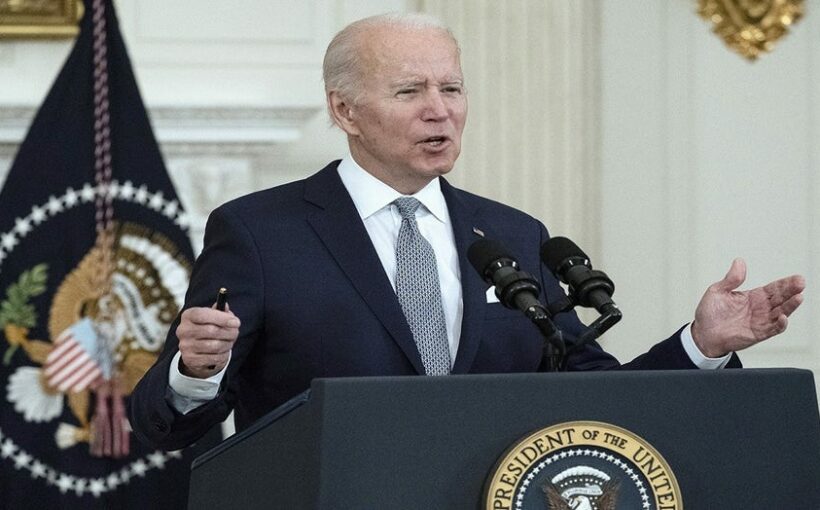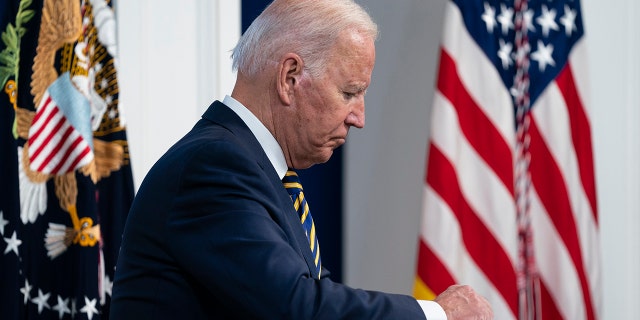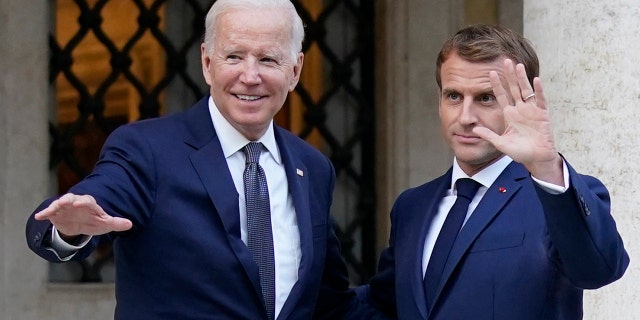Biden’s foreign policy issues piling up during first year in office
National security correspondent Jennifer Griffin has the details from the Pentagon on ‘America Reports.’
The one area in which presidents have the most executive power is foreign policy. President Biden campaigned on his decades of foreign policy experience with promises to improve the U.S. standing among world leaders with slogans like a return to having “adults in the room.” But a year into his presidency, Biden is receiving low marks for his foreign policy record.
A recent Quinnipiac poll showed Biden has a 35% approval rating on foreign policy a year into his presidency, with 54% disapproving.
Among the first setbacks in March of last year was when the summit with the Chinese, led by Secretary of State Antony Blinken and national security adviser Jake Sullivan, to address trade, human rights, Hong Kong, cyber attacks, COVI, and rising military tensions in the South China Sea went off the rails.
“The Anchorage meeting with the Chinese, which was by far the worst bilateral meeting the US has had with any country around the world under the Biden administration, it was very badly mishandled,” Ian Bremmer of the Eurasia Group said in an interview with Fox News. “They were lecturing at the Chinese, the Chinese were lecturing at the Americans, and it felt like that relationship was sort of spiraling out of control. I think a lot has been done to try to stabilize the relationship since, but still, that was a real problem.”
President Biden listens during the Major Economies Forum on Energy and Climate, in the South Court Auditorium on the White House campus, Friday, Sept. 17, 2021, in Washington.
(AP Photo/Evan Vucci)
In the months to follow, China sent an unprecedented number of warplanes toward Taiwan to test the U.S. response, raising fears that an invasion of Taiwan appeared imminent.
“I think President Biden’s actually had a pretty easy go as first years of a presidency on foreign policy are tested,” Kori Schake, director of Foreign and Defense Policy at the American Enterprise Institute told Fox News. “The low points of the Biden presidency have actually been the president’s own mistakes.”
Namely, Biden’s handling of Afghanistan and his decision to pull all U.S. troops out of the country, which has led to a humanitarian disaster.
Afghanistan now stands on the verge of starvation and a collapsing economy, just four months after the chaotic U.S. military withdrawal.
Taliban soldiers stand guard in Panjshir province northeastern of Afghanistan, Wednesday, Sept. 8, 2021.
(AP Photo/Mohammad Asif Khan)
“It’s a very bleak situation where people are facing stark and severe starvation,” said World Food Program spokesperson Shelley Thakral, who spoke to Fox News from Herat. “You can imagine that about five months ago, people had jobs. They were drawing salaries, especially in the city centers. People are at a tipping point. They are just broken by what is happening to them. No jobs, no cash, no food, no health system. Something at some point has to give.”
NATO allies who believed Biden would consult with them after years of insults from his predecessor Donald Trump were blindsided by the sudden unilateral U.S. withdrawal, leaving relations in the Gulf particularly frayed as those countries question whether the US is a reliable ally.
“Those are all decisions the president made, not decisions that the bureaucracy somehow made for the president,” Schake said.
Even the French, America’s first ally, erupted in anger when the Biden administration suddenly announced a nuclear submarine deal with Australia, undercutting a prior deal between the French and the Australian military — something President Biden had to apologize to the French President for.
U.S. President Joe Biden, left, and French President Emmanuel Macron wave prior to a meeting at La Villa Bonaparte in Rome, Friday, Oct. 29, 2021.
(AP Photo/Evan Vucci)
“On balance, most American allies around the world have much better alignment with the Biden administration than they did with the Trump administration,” Bremmer conceded.
But in the past week, talks with the Russians ended without progress.
“The potential for the Russians to engage in material escalation vis-à-vis Ukraine and other issues involving core European national security, and whether or not the Americans are able to effectively and multilaterally respond with our allies, I think is a very big question,” Bremmer said. “And frankly, it is the most consequential of the geopolitical challenges that Biden will have faced to date of his first year.”
Putin remains poised with more than 100,000 troops to invade Ukraine, but experts say it is not clear whether Putin has made a final decision about what to do.
“The Biden administration has handled this crisis pretty well. They understood early on that Russia was massing forces. They shared the intelligence with NATO’s allies. They got allies aligned on a common approach,” Schake said. “I’m not sure whether they actually understood how literally incredible it would be after their abandonment of Afghanistan to threaten we would go to war to defend Ukraine.”
Secretary of State Antony Blinken admitted recently that time was running out for a new Iran deal. North Korea tested multiple ballistic missiles, which the Pentagon fears may have included a hypersonic weapon. And Iran keeps backing Shia militias sending drone strikes and rockets targeting the U.S. military and its allies in Iraq and the Gulf. A year into the Biden administration, the foreign policy tests continue to mount.
Source: Read Full Article




